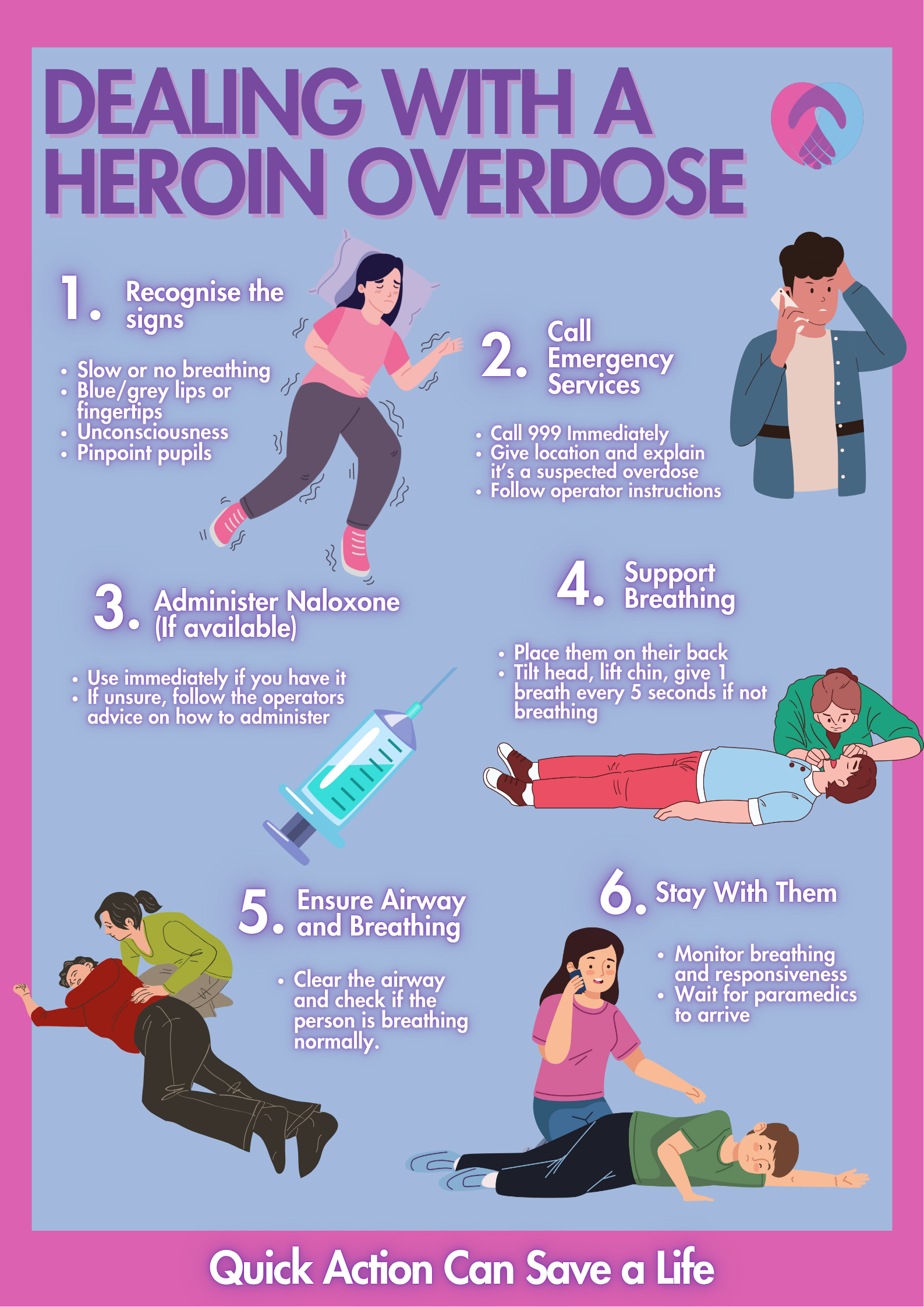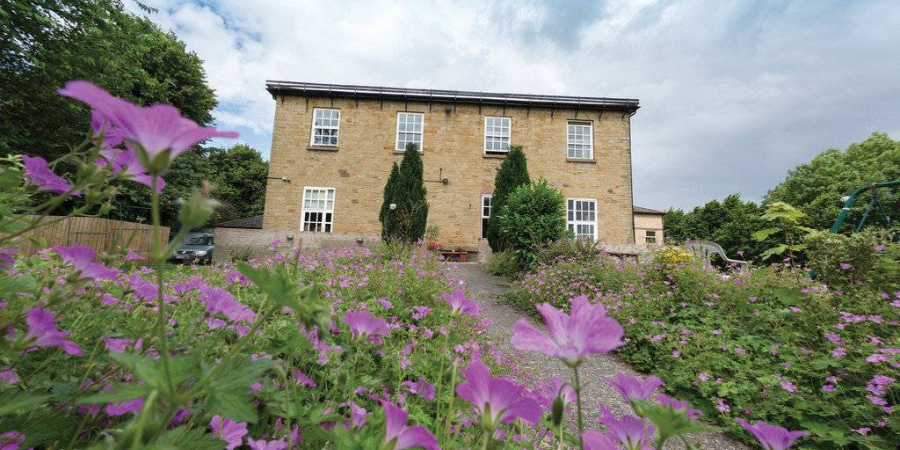
Written by:

Medically Reviewed by:
Last Updated:
October 13th, 2025
Heroin rehab
Addiction to heroin is one of the hardest and most dangerous battles anyone can face. Heroin and other opiates are behind half of all drug-poisoning deaths in England and Wales, a stark reminder of just how high the risks are. But while heroin addiction can be deadly, it is also treatable, and with the right help, people do recover every day.
What is heroin rehab?
Heroin rehab is a place and a process that can help you escape the brutal reality of addiction. It is a full offering of different therapies and treatments which look at the causes and crises that have brought you to the brink.
Before you can begin rehab therapy, you first undergo heroin detox, which clears all the remaining drugs from your body and ends acute physical dependency. After that, you can then go on to the therapy and aftercare stages of recovery.
At UKAT, heroin rehab and detox are always inpatient, so you live full-time in one of our centres. With no heroin available, structured daily routines in place, and staff by your side around the clock, you can focus fully on getting well.
Heroin overdoses claim lives every week in Britain, but choosing rehab gives you the best possible chance of building a safe and fulfilling future.
Who is heroin rehab for?
Heroin rehab is for anyone who knows they can’t keep gambling with their lives. Some people arrive after a terrifying close call in A&E. Others come because their family encourages them to get help before it’s too late. Many walk through our doors simply because they’re exhausted, tired of chasing the next hit, or seeing their life slowly fall apart.
But heroin rehab is not only for those at rock bottom. You may still be getting up for work or paying your bills, but heroin has no safe level. Dependency can grow frighteningly fast, your health can deteriorate quickly, and any dose can potentially be the last one.
NHS data shows that 137,965 adults in England were in treatment for opiates in 2023–24, a clear sign that while you may feel alone, there are many other people fighting (and winning!) the exact same battle.
Why is heroin rehab important?
Leaving heroin addiction untreated is incredibly dangerous, and every use carries the risk of fatal overdose. Few people survive long-term heroin use without intervention, and the consequences can be devastating for health, relationships, and stability.
Physically, heroin causes a huge strain on your body. Injecting heroin can lead to serious infections, abscesses, or collapsed veins. Sharing needles or equipment can put you at high risk of contracting HIV or hepatitis. And with long-term use, heroin can damage your heart, kidneys, and liver, and cause chronic respiratory problems.
Mentally, heroin can trap you in cycles of depression, anxiety, and trauma, and as daily life becomes centred around getting and using the drug, you can become completely disconnected from your loved ones and the world around you.
Because heroin is illegal, there is also the constant risk of arrest, fines, or prison sentences. In the UK, people with serious drug addiction occupy about one third of prison places (just under 29,000 people in 2024), while 1 in 6 men and 1 in 7 women are in prison for drug offences. Many of these cases are tied to heroin and the chaos that comes with drug addiction.
Heroin rehab matters because it’s the most effective way to break this cycle of destruction before it’s too late. With the right medical care, therapy, and long-term support, many of the physical and mental health effects can stabilise, and you can begin to rebuild your life.
Do I need heroin rehab?
Heroin is rarely the first drug that people try, but it’s often where things become really dangerous. Some people start with “less harmful” drugs or become addicted to prescription opioids, which they can’t get anymore. However it starts, there are telltale signs that can show you need help. Ask yourself these questions:
- Do you wake up needing heroin just to get through the day?
- Have you lost friends, jobs, homes or relationships because of heroin?
- Do you feel ashamed or secretive about how much you are really taking?
- Have you had any serious medical emergencies, but still kept using heroin?
- Have people who care about you begged you to get help?
- Do you worry that one dose could be the one that ends your life?
- Are you committing crimes to feed your need for heroin?
If those questions hit close to home, then this is the moment to act and change your life before you lose it.
What are the benefits of heroin rehab?
The most immediate benefit of heroin rehab is staying alive. Every heroin dose outside carries the risk of overdose, but in heroin rehab, you’re in a safe place, watched over by people who know what to do in an emergency.
Physically, the difference can be huge as wounds, veins, and infections start to heal and your organs start to recover. Mentally, the constant pressure lifts, symptoms of anxiety and depression become more manageable, and instead of every thought being about heroin, you have space to think about yourself again.
The impact on families is equally enormous, as heroin can be incredibly traumatic for loved ones. Heroin rehab offers a line in the sand and a chance to stop the damage and begin putting things right. With family therapy and support, bridges can slowly be rebuilt, and the cycle of trauma can be broken.
Heroin rehab can also keep you out of prison. Heroin is a Class A drug with seven years for possession and a potential life sentence for dealing. This constant threat hangs over everyone still using heroin, but successfully completing rehab means you no longer need to live with that fear.
Private heroin rehab vs. NHS rehab
When you reach the point of needing heroin rehab, time is critical. NHS services are available, but most treatment is offered on an outpatient basis. That means you keep living at home while attending appointments, often in the same environment where heroin use has taken hold. For some people with a lot of family support, this may work, but for many, the risks of relapse are too high. NHS waiting lists can also stretch for months, and with heroin, every delay can be deadly.
Private heroin rehab at a UKAT centre removes that risk. You live on site, with no access to heroin, and a full team supporting you around the clock. Your days are structured, with meals, therapy sessions, and group support to carry you through even the hardest moments. In this setting, heroin withdrawal can be managed safely, and the recovery process can begin without constant threats of relapse.
Therapies involved in heroin addiction treatment
Therapy is where heroin rehab really begins to change lives. For many, this is the first safe space to sit down and face the fear, grief, and struggles that heroin has hidden away. By talking through your issues with experienced professionals, you can begin to understand what has happened to you and feel a huge weight lifted off your shoulders.
Therapy in heroin rehab is varied because no single approach works for everyone. At UKAT’s centres, you can expect a combination of one-to-one counselling, group sessions, and structured therapies such as CBT or DBT. Trauma therapy is also offered, as so many people using heroin have lived through painful experiences that need to be addressed if recovery is to last.
As well as those personal approaches, family therapy is also a key part of our programmes, helping to repair the deep fractures heroin often causes at home. You will also take part in holistic therapies, like mindfulness, exercise, or creative sessions, which can be a nice change of pace and heal you in different ways.
The exact balance of therapies depends on the centre you choose, so get in touch with us to find out more.
Heroin relapse prevention and aftercare
Recovery doesn’t stop when you walk out of a UKAT heroin rehab centre, as learning how to live without heroin in the outside world takes time. Studies show that 40–60% of people with substance use disorders relapse, but with heroin, a single slip can be deadly. This is because even after a short break, your tolerance drops and the risk of heroin overdose rises sharply.
That is why UKAT makes relapse prevention central to every programme. In rehab, you will work closely with your therapists to identify what has pulled you back towards heroin before. For some people, it is stress, loneliness, or boredom. For others, it is running into old friends or familiar places tied to heroin use. Talking these situations through and practising strategies for dealing with them means you’re less likely to be caught off guard when they happen again.
After rehab, ongoing support keeps that foundation strong, with our aftercare programme. Every client gets an invitation into our Alumni network. That community, and the sense that you’re not fighting alone, can make all the difference when recovery feels fragile. Recovery is never a straight line, but with the right planning and community, every step forward is a step away from heroin.
How to find heroin addiction treatment near me?
Heroin addiction can end lives in an instant, but rehab can save yours. At UKAT’s heroin rehab centres, you will find a place where recovery is possible and support never runs out. Our programmes combine medical treatment, therapy, and aftercare so you’re never left to struggle alone. Contact us now, because waiting even one more day can be the difference between life and death.
Frequently asked questions
(Click here to see works cited)
- “Drug Misuse in England and Wales: Year Ending June 2023.” Office for National Statistics, 19 Oct. 2023, www.ons.gov.uk/peoplepopulationandcommunity/crimeandjustice/articles/drugmisuseinenglandandwales/yearendingjune2023
- “Substance Misuse Treatment for Adults: Statistics 2023 to 2024.” Office for Health Improvement and Disparities, 29 Nov. 2024, www.gov.uk/government/statistics/substance-misuse-treatment-for-adults-statistics-2023-to-2024
- “Prison Reform Trust: Bromley Briefings Prison Factfile, Summer 2024.” Prison Reform Trust, June 2024, www.prisonreformtrust.org.uk/publications/summer-2024-bromley-briefings-prison-factfile
- “Treatment and Recovery.” National Institute on Drug Abuse, July 2020, nida.nih.gov/publications/drugs-brains-behavior-science-addiction/treatment-recovery






